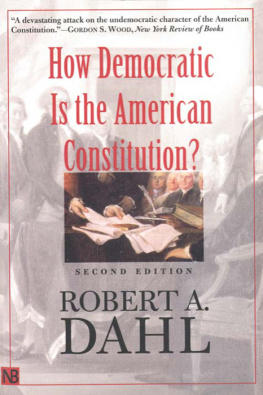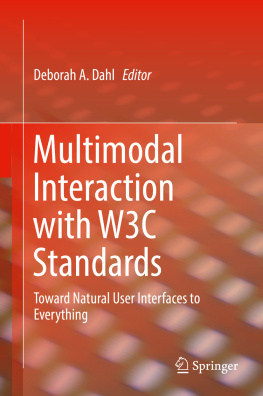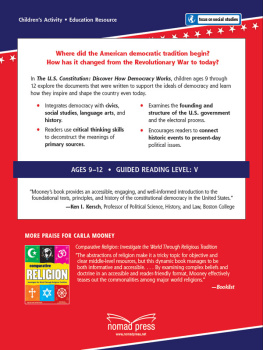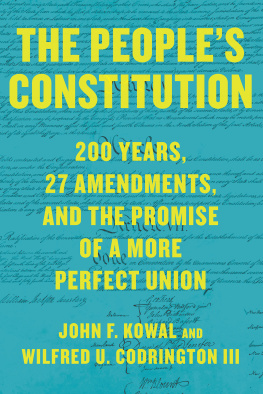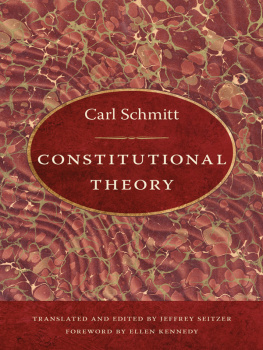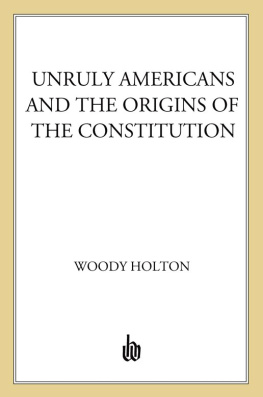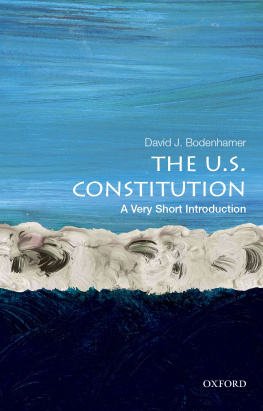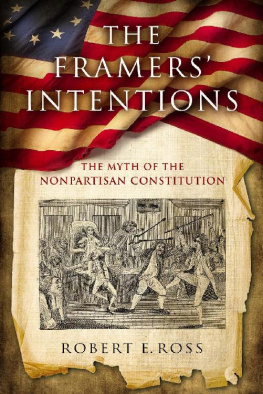The Castle Lectures in Ethics, Politics, and Economics
Published with assistance from the foundation established in memory of
Philip Hamilton McMillan of the Class of 1894, Yale College.
This Nota Bene edition published 2003 by Yale University Press.
First Edition published 2002 by Yale University Press.
Second Edition copyright 2003 by Yale University.
First Edition copyright 2002 by Yale University.
All rights reserved.
This book may not be reproduced, in whole or in part, including
illustrations, in any form (beyond that copying permitted by Sections
107 and 108 of the U.S. Copyright Law and except by reviewers for
the public press), without written permission from the publishers.
Designed by James J. Johnson and set in New Caledonia and
Bulmer types by Integrated Publishing Solutions.
Printed in the United States of America.
For information about this and other Yale University Press publications,
please contact:
U.S. office
Europe office
Library of Congress Control Number: 2003106483
ISBN 0-300-09524-4 (pbk)
A catalogue record for this book is available from the British Library.
10 9 8 7 6 5 4 3 2 1
Parts of this book were given as a series of Castle Lectures in Yales Program in Ethics, Politics, and Economics, delivered by Robert Dahl at Yale University in 2000.
The Castle Lectures, endowed by Mr. John K. Castle, honor his ancestor, the Reverend James Pierpont, one of Yales founders. Given by prominent public figures, the lectures are intended to promote reflection on the moral foundations of society and government and to enhance understanding of ethical issues facing individuals in our complex modern society.
Acknowledgments
THE INVITATION TO DELIVER THE CASTLE LECTURES AT Yale provided me with an incentive for bringing into focus views about the American Constitution that I had gradually formed over many years. Though I had set forth some of my arguments in various essays and book chapters, others remained largely implicit or undeveloped until I drafted the lectures. This book embodies the substance of the Castle Lectures, slightly revised and enlarged, that I delivered in the early fall of 2000.
For extending to me the invitation to deliver the lectures, I am indebted to Geoffrey Garrett, director of the Program in Ethics, Politics, and Economics. To both him and Ian Shapiro I want to express my appreciation for their warm endorsement of the subject I proposed for my lectures.
For her invaluable research assistance I am indebted to Jennifer Smith.
For their helpful queries, corrections, or contributions I also want to thank Wendell Bell, Kai Erikson, Fred Greenstein, Steven Hill, Malcolm Jewell, Joseph LaPalombara, Rogers Smith, and, at Yale University Press, Ali Peterson for her sensitive editing and Larisa Heimert for her skillful and energetic help in conducting the manuscript through the publishing process.
Finally, let me take this opportunity to express my thanks to those members of the audience whose questions and comments enabled me to discover aspects of my presentation that would benefit, in this published version, from greater clarification or more extensive treatment.
CHAPTER 1
Introduction:
Fundamental Questions

M Y AIM IN THIS BRIEF BOOK IS NOT TO PROPOSE changes in the American Constitution but to suggest changes in the way we think about our constitution. In that spirit, Ill begin by posing a simple question: Why should we Americans uphold our Constitution?
Well, an American citizen might reply, it has been our constitution ever since it was written in 1787 by a group of exceptionally wise men and was then ratified by conventions in all the states. But this answer only leads to a further question.
To understand what lies behind that next question, I want to recall how the Constitutional Convention that met in Philadelphia during the summer of 1787 was made up. Although we tend to assume that all thirteen states sent delegates, in fact Rhode Island refused to attend, and the delegates from New Hampshire didnt arrive until some weeks after the Convention opened. As a result, several crucial votes in June and July were taken with only eleven state delegations in attendance. Moreover, the votes were counted by states, and although most of the time most state delegations agreed on a single position, on occasion they were too divided internally to cast a vote.
My question, then, is this: Why should we feel bound today by a document produced more than two centuries ago by a group of fifty-five mortal men, actually signed by only thirty-nine, a fair number of whom were slaveholders, and adopted in only thirteen states by the votes of fewer than two thousand men, all of whom are long since dead and mainly forgotten?
Our citizen might respond that we Americans are free, after all, to alter our constitution by amendment and have often done so. Therefore our present constitution is ultimately based on the consent of those of us living today.
But before we accept this reply, let me pose another question: Have we Americans ever had an opportunity to express our considered will on our constitutional system? For example, how many readers of these lines have ever participated in a referendum that asked them whether they wished to continue to be governed under the existing constitution? The answer, of course, is: none.
Our citizen might now fall back on another line of argument: Why should we change a constitution that has served and continues to serve us well?
Although this is surely a reasonable line of argument, it does suggest still another question: By what standards does our constitution serve us well? In particular, how well does our constitutional system meet democratic standards of the present day? Ill turn to this question in the next chapter.
And if our constitution is as good as most Americans seem to think it is, why havent other democratic countries copied it? As well see in , every other advanced democratic country has adopted a constitutional system very different from ours. Why?
If our constitutional system turns out to be unique among the constitutions of other advanced democratic countries, is it any better for its differences, or is it worse? Or dont the differences matter? Ill explore this difficult question in the fourth chapter.
Suppose we find little or no evidence to support the view that our constitutional system is superior to the systems of other comparable democratic countries, and that in some respects it may actually perform rather worse. What should we conclude?
As one part of an answer, I am going to suggest that we begin to view our American Constitution as nothing more or less than a set of basic institutions and practices designed to the best of our abilities for the purpose of attaining democratic values. But if an important democratic value is political equality, wont political equality threaten the rights and liberties we prize? In , Ill argue that this viewfamously defended by Tocqueville, among othersis based on a misunderstanding of the relationship between democracy and fundamental rights.
Yet the question remains: if our constitution is in some important ways defective by democratic standards, should we change it, and how? As I said, my aim here is not so much to suggest changes in the existing constitution as to encourage us to change the way we think about it, whether it be the existing one, an amended version of it, or a new and more democratic constitution. That said, in my final chapter Ill comment briefly on some possible changes and on the obstacles to achieving them.

